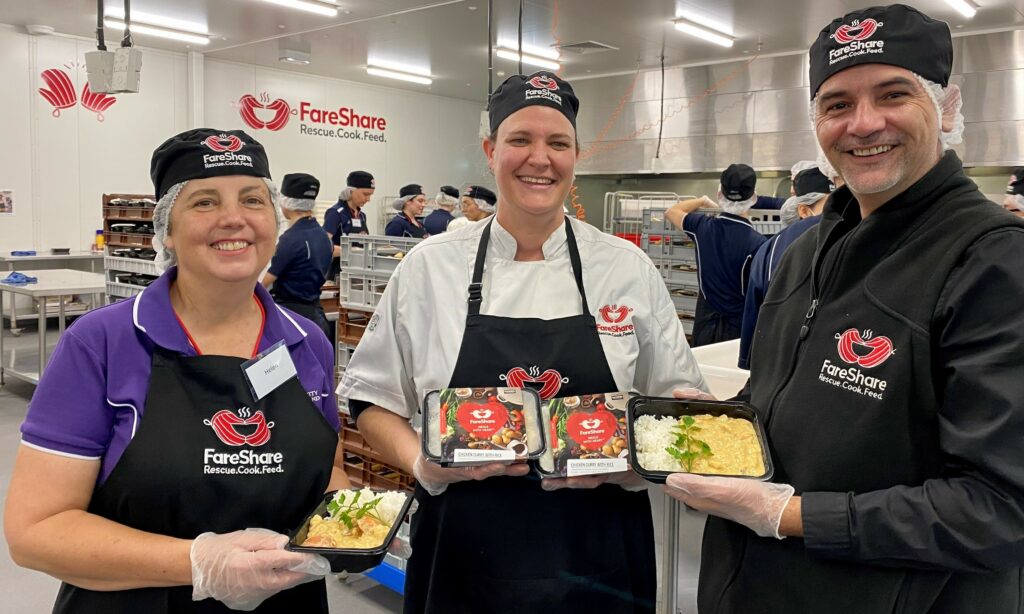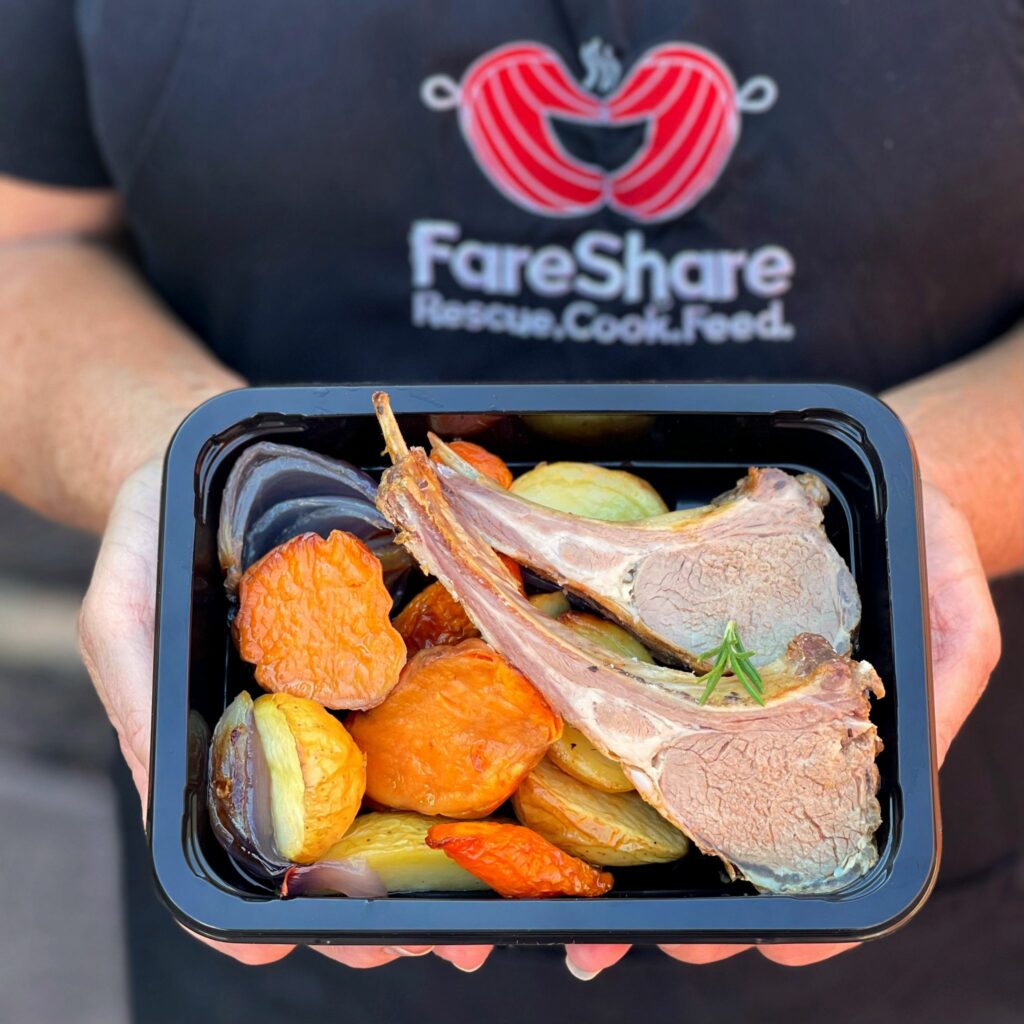Every meal FareShare cooks is nutritious and created with care.

Making every meal count
We make every meal as nutritious as possible because we know it may be the only meal of the day for the person who receives it. Both mental and physical health are compromised when people face food insecurity and don’t know where their next meal is coming from.

Catering to every taste
Cooking with rescued and donated food together with the vegetables we grow ourselves means that our chefs start the day with ever-changing ingredients. Their goal is to transform this food into healthy, delicious and well-presented meals that boost the dignity and wellbeing of people experiencing hardship.
We understand that tastes and preferences vary so we cook a wide variety of both meat-based and vegetarian dishes. We add legumes and pulses – good sources of protein – to our vegetarian meals and ensure a high vegetarian content in our meat dishes.
The importance of nutrition
Eating a well balanced, nutritious diet provides us with the nutrients (proteins, minerals and vitamins) we need to stay healthy. It reduces the risk of disease and chronic conditions such as diabetes, heart disease and stroke, helps maintain a healthy body weight, protects against infection, and plays a major role in overall health and wellbeing at all stages of our life.
But accessing nutritious food is becoming more and more difficult, particularly with the high cost of living. As the FoodBank Hunger Report and other literature highlights, proteins and fresh fruit and vegetables are often the first foods people forgo when money gets tight.
The sad truth is that people facing hardship have a much tougher time accessing the quality, nutritious food they need to thrive. That’s why FareShare places a strong emphasis on nutrition in our kitchens.
Adding nutritional science to our meals
FareShare has been seeking professional guidance to inform our recipes to ensure that every meal we cook is packed with as much nutritional value as possible to maximise health benefits.
Our Brisbane kitchen has been applying science in collaboration with the University of Queensland (UQ)’s Nutrition and Dietetics department.
“We want to improve our literacy in nutrition and ensure our chefs and kitchen staff cook the best possible meals with the ingredients available,” says FareShare’s Kellie Watson. “The relationship with UQ has given us access to nutrition and dietetics advice to help us maximise the impact of our meals.”
According to Helen Truby, Professor of Nutrition and Dietetics at UQ, one of the gaps that FareShare can fill in the diets of people facing food insecurity is by offering meals with a high vegetable content.
“Vegetables provide essential micro-nutrients, phytochemicals and also dietary fibre, which is very important for gut health.”
This can be particularly true in regional and remote areas, such as First Nations communities.
FareShare, Prof. Truby and her UQ students have worked closely with First Nations communities to develop culturally-appropriate, master recipes that pack a big nutritional punch. You can read more about this on our Reconciliation page.
The links between poor diet and mental health are also becoming more understood and Prof Truby says this is an important area of new research.
Read more about our collaboration with the University of Queensland here.

